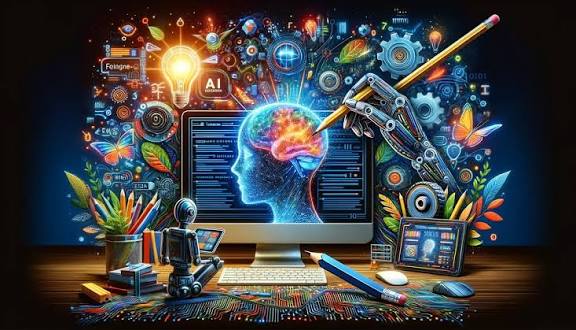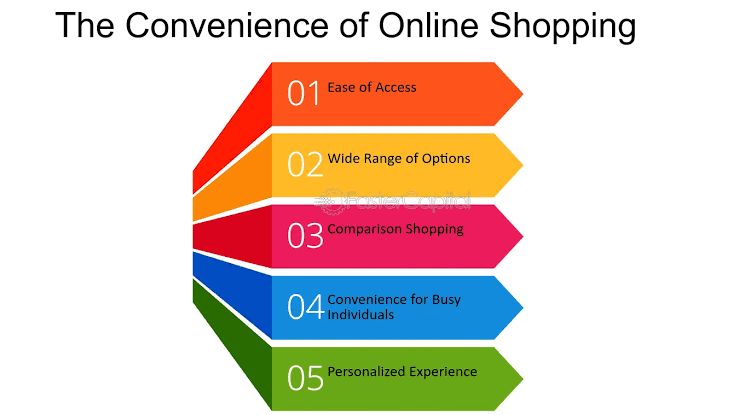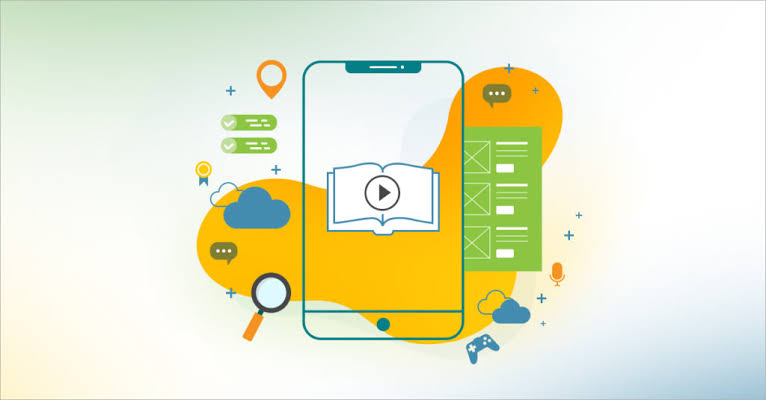
The Future of Social Media Marketing: AI-Powered Insights and Audience Engagement
AI is transforming social media marketing by enabling precise audience targeting, predictive analytics, automated content creation, and real-time engagement. Marketers can optimize ad spend, enhance customer experiences, and leverage sentiment analysis to refine campaigns. Influencer collaborations become smarter, while AI-driven insights drive strategy.
✨ Raghav Jain

Introduction
Social media has transformed the way businesses connect with their audience, build brand awareness, and drive sales. But the landscape is changing rapidly. With billions of users worldwide and constantly evolving trends, marketers face the challenge of standing out and engaging audiences effectively. This is where Artificial Intelligence (AI) steps in, reshaping the future of social media marketing.
AI-powered tools are revolutionizing how brands understand audience behavior, personalize content, predict trends, and automate campaigns. By leveraging AI, marketers can gain deep insights, make data-driven decisions, and foster meaningful engagement like never before.
In this article, we will explore the role of AI in social media marketing, how it enhances audience engagement, the emerging tools and technologies, and practical strategies to implement for business growth. The future of social media marketing is evolving at an unprecedented pace, fueled by the rapid advancements in artificial intelligence (AI). Businesses and marketers are increasingly relying on AI-powered tools to understand audiences, create compelling content, and optimize strategies for maximum engagement. The integration of AI in social media marketing is not just a passing trend; it is shaping the way brands interact with consumers, make data-driven decisions, and establish meaningful relationships in a digital-first world.
Social media platforms generate an immense volume of data every second, from likes, shares, and comments to video views, click-through rates, and user behavior patterns. Traditionally, marketers have relied on manual data analysis or basic analytics tools to interpret this information. However, AI algorithms can process vast datasets far more efficiently, uncovering insights that were previously inaccessible. Machine learning models can detect patterns in consumer behavior, identify emerging trends, and predict which types of content will resonate with specific audience segments. This capability allows brands to make strategic decisions faster and more accurately, ensuring that marketing efforts are not just reactive but proactively tailored to audience preferences.
One of the most significant impacts of AI on social media marketing is personalized engagement. Consumers today expect brands to understand their interests, preferences, and needs, and AI makes this possible on a large scale. By analyzing user data, AI can segment audiences based on demographics, online behavior, and engagement history. This segmentation enables brands to deliver highly targeted content that speaks directly to individual users. For instance, AI-driven recommendation engines can suggest products, services, or content tailored to each user’s unique profile, enhancing the likelihood of interaction and conversion. Personalization is no longer limited to email marketing; it has become a core component of social media strategies, transforming passive followers into active, loyal customers.
Content creation is another area where AI is revolutionizing social media marketing. Tools powered by natural language processing and image recognition can assist in generating captions, posts, and even visual content that aligns with brand identity and audience preferences. AI can analyze past performance data to determine which types of posts achieve the highest engagement, guiding marketers in crafting content that resonates. Moreover, AI can adapt content dynamically in real-time, adjusting messaging or visuals based on user interactions. This adaptability ensures that social media campaigns remain relevant and engaging, reducing the risk of content fatigue and increasing overall reach.
Predictive analytics is a further dimension where AI enhances marketing strategies. By analyzing historical data and current trends, AI models can forecast future behavior, such as the optimal posting times, the likelihood of content virality, or the probability of customer churn. These insights enable marketers to allocate resources more efficiently, schedule campaigns strategically, and anticipate consumer needs before they manifest. Predictive analytics not only improves campaign performance but also allows brands to create a more seamless customer journey, strengthening brand loyalty and satisfaction.
AI also plays a critical role in social listening and sentiment analysis. Social media users frequently express opinions, share experiences, and discuss brands online. AI algorithms can monitor these conversations, detect sentiment, and identify emerging issues or opportunities in real-time. This capability allows businesses to respond proactively to customer feedback, address complaints swiftly, and engage with audiences in a meaningful way. Social listening powered by AI provides brands with a deeper understanding of public perception, enabling them to shape their messaging and reputation strategically.
Furthermore, AI is transforming advertising on social media. Programmatic advertising, which uses AI to automate the buying and placement of ads, allows marketers to target the right audience at the right time with precision. AI optimizes bidding strategies, audience targeting, and ad creatives based on continuous performance data. As a result, businesses can achieve higher return on investment while minimizing wasted spend. The integration of AI in advertising also facilitates experimentation, allowing marketers to test multiple campaign variations simultaneously and identify the most effective approach in real-time.
While AI offers immense potential, its adoption also raises important considerations regarding ethics, privacy, and transparency. Collecting and analyzing user data requires responsible practices to ensure compliance with regulations such as GDPR and to maintain consumer trust. Brands must be transparent about data usage and prioritize user consent, balancing personalization with respect for privacy. Additionally, reliance on AI should complement human creativity and strategic thinking rather than replace it entirely. While algorithms can optimize performance and uncover insights, the human touch remains essential for crafting authentic messaging, building emotional connections, and interpreting nuanced social dynamics.
Looking ahead, the role of AI in social media marketing will continue to expand, driven by advancements in machine learning, natural language processing, and computer vision. Emerging technologies such as generative AI and virtual reality will open new avenues for immersive content experiences and interactive engagement. Marketers who embrace AI proactively will gain a competitive advantage, leveraging data-driven insights to create campaigns that are not only efficient but also deeply resonant with audiences. The future of social media marketing is not just about technology; it is about harnessing AI to foster meaningful connections, deliver value, and anticipate the evolving needs of consumers.
In conclusion, AI-powered insights and audience engagement are transforming social media marketing into a highly sophisticated, data-driven discipline. From personalized content and predictive analytics to social listening and programmatic advertising, AI provides marketers with tools to understand their audiences better, optimize campaigns, and drive meaningful engagement. As technology continues to advance, the integration of AI will become increasingly essential for businesses seeking to thrive in a competitive digital landscape. The future of social media marketing lies at the intersection of human creativity and artificial intelligence, where strategic innovation meets intelligent automation to create experiences that captivate, inspire, and engage audiences like never before.
Understanding AI in Social Media Marketing
AI in social media refers to the use of machine learning algorithms, natural language processing, predictive analytics, and automation to analyze data, optimize campaigns, and interact with audiences. It goes beyond simple analytics—it learns from patterns, predicts outcomes, and enables hyper-personalized strategies.
Key components of AI in social media include:
- Predictive Analytics: Anticipates audience behavior and content performance.
- Chatbots and Virtual Assistants: Provide instant customer service and engagement.
- Content Recommendation Systems: Suggest content based on user preferences.
- Sentiment Analysis: Understands audience emotions and feedback.
- Automated Scheduling and Optimization: Publishes content at peak engagement times.
Good AI-driven marketing means smarter decisions, faster execution, and more personalized interactions. Ignoring AI could mean falling behind competitors who are leveraging technology to better connect with audiences.
How AI Enhances Audience Engagement
1. Hyper-Personalized Content
AI analyzes user behavior, interests, and demographics to deliver content that resonates individually. Personalized content increases engagement, boosts shares, and encourages repeat interactions.
2. Chatbots for Instant Interaction
Chatbots powered by AI provide real-time support and engagement, handling queries, recommendations, or simple conversations. They keep your audience connected even outside business hours.
3. Predictive Audience Insights
AI identifies patterns in user behavior, such as the best posting times, trending topics, and content types that drive engagement. Marketers can then create campaigns optimized for maximum impact.
4. Sentiment and Feedback Analysis
AI tools scan comments, messages, and reviews to gauge audience sentiment. Understanding how your audience feels allows brands to respond proactively, improve products, and manage reputations.
5. Automated Content Creation and Curation
AI can generate captions, suggest hashtags, and even create visual content based on trending styles. Curating content relevant to your audience reduces manual work and keeps your feed fresh.
6. Enhanced Influencer Identification
AI analyzes social media profiles to find influencers whose audiences align with your brand. This ensures collaborations are targeted, effective, and measurable.
Emerging AI Tools in Social Media Marketing
- AI Analytics Platforms – Tools like Sprout Social, Hootsuite Insights, and Brandwatch provide predictive analytics and sentiment tracking.
- AI-Powered Chatbots – Platforms such as ManyChat, Chatfuel, and MobileMonkey automate customer engagement.
- Content Generation Tools – Tools like Copy.ai, Lately.ai, and Canva’s AI assist in creating captions, posts, and designs.
- Social Listening Tools – Tools like Talkwalker and Mention monitor brand mentions, trends, and competitor activities in real time.
- Ad Optimization Tools – Platforms like Pattern89 and Adzooma use AI to predict ad performance and suggest budget allocation.
Strategies to Leverage AI for Social Media Marketing
1. Audience Research and Segmentation
AI helps divide audiences into segments based on interests, behavior, and engagement levels. Tailor campaigns to each segment for better response.
2. Personalized Messaging
Use AI insights to send targeted messages, emails, or ads that address the specific needs of each audience segment.
3. Predictive Content Planning
Analyze past engagement data to predict which type of content will perform best. This ensures your social media calendar is both effective and strategic.
4. Real-Time Engagement Monitoring
AI tools monitor mentions, comments, and messages continuously. Respond instantly to queries or negative feedback to maintain a positive brand image.
5. Automation Without Losing Human Touch
While AI can automate posting, responses, and analytics, always add a personal touch when needed. Balance efficiency with authenticity.
6. Trend Spotting and Adaptation
AI can track trending topics, hashtags, and viral content. Align your campaigns quickly with emerging trends for better visibility and engagement.
Daily Practices for AI-Powered Social Media Success
Morning Routine
- Review AI insights for overnight engagement trends.
- Plan posts according to suggested peak times.
- Respond to urgent messages flagged by AI chatbots.
Midday Check
- Analyze real-time audience reactions to content.
- Curate trending content recommended by AI tools.
- Engage with followers through comments or polls.
Evening Review
- Evaluate daily metrics using AI analytics dashboards.
- Adjust next day’s strategy based on AI predictions.
- Schedule posts for peak engagement using automation tools.
Weekly AI-Driven Activities
- Identify 2-3 high-performing posts and analyze why they worked.
- Rotate content types based on AI engagement predictions.
- Explore new hashtags and keywords suggested by AI tools.
- Check sentiment analysis reports to improve audience relations.
- Adjust ad budgets based on AI performance forecasts.
Common Challenges and Solutions
Challenge: AI is too complex or costly.
Solution: Start with free or affordable AI tools, gradually integrate advanced platforms as you grow.
Challenge: Over-reliance on automation.
Solution: Use AI to assist, not replace human creativity and judgment. Personal responses are still essential.
Challenge: Data privacy concerns.
Solution: Ensure AI tools comply with GDPR and privacy regulations, and inform users transparently.
Challenge: AI predicts trends but can’t create empathy.
Solution: Combine AI insights with human storytelling for authentic engagement.
Myths About AI in Social Media Marketing: Busted!
“AI will replace social media marketers.”
→ False! AI assists marketers but cannot replace creativity, intuition, and relationship-building.
“AI insights are always 100% accurate.”
→ Not true. AI predictions are powerful but should be combined with human judgment.
“AI tools are only for big brands.”
→ Incorrect. Small businesses can use free or low-cost AI platforms effectively.
“Engagement becomes robotic with AI.”
→ Not necessarily. AI helps optimize timing and content but human interaction still drives meaningful engagement.
“AI replaces creativity with automation.”
→ Absolutely wrong. AI enhances creativity by providing insights and removing repetitive tasks, allowing marketers to focus on strategy and innovation.
Sample AI-Enhanced Social Media Workflow
Content Planning: Use AI analytics to determine top-performing content types.
Post Scheduling: Automate posts at AI-recommended peak hours.
Engagement: Use chatbots for FAQs; personally respond to important messages.
Performance Review: Daily AI dashboards show impressions, clicks, engagement, and sentiment.
Trend Alignment: AI recommends trending topics or hashtags to include in future posts.
Strategy Adjustment: Weekly insights guide content creation, ad campaigns, and audience targeting.
Conclusion
The future of social media marketing is undeniably intertwined with AI. From hyper-personalized content to real-time engagement and predictive analytics, AI is transforming the way brands connect with audiences. Marketers who embrace AI-powered insights and tools will be better equipped to build meaningful relationships, drive conversions, and stay ahead of the competition.
However, AI is not a replacement for human creativity and empathy—it’s a powerful assistant that amplifies strategy, efficiency, and impact. By combining AI insights with authentic interaction and engaging storytelling, businesses can achieve unparalleled audience engagement.
Start small. Experiment with AI tools. Monitor results.
The future is here, and social media marketing powered by AI promises smarter, faster, and more personalized ways to grow your brand.
Q&A Section
Q1:- What is AI-powered social media marketing?
Ans :- AI-powered social media marketing uses machine learning and algorithms to analyze user behavior, optimize content, automate posting, and deliver personalized experiences, enhancing engagement and campaign effectiveness.
Q2:- How does AI improve audience targeting on social platforms?
Ans :- AI analyzes demographics, interests, and interactions to segment audiences accurately, ensuring ads and content reach the right people at the right time for maximum impact.
Q3:- What role do predictive analytics play in social media marketing?
Ans :- Predictive analytics forecast trends, user behavior, and engagement patterns, helping marketers craft strategies that anticipate audience needs and improve ROI.
Q4:- How can AI enhance content creation and curation?
Ans :- AI tools generate, optimize, and suggest content based on engagement data, trending topics, and audience preferences, making campaigns more relevant and timely.
Q5:- In what ways does AI improve social media customer service?
Ans :- Chatbots and AI assistants provide instant responses, handle common queries, and guide users through personalized experiences, boosting satisfaction and brand loyalty.
Q6:- How does AI-driven sentiment analysis help marketers?
Ans :- Sentiment analysis monitors user reactions and opinions on posts, campaigns, or brands, helping marketers adapt messaging and strategies in real time.
Q7:- What is the impact of AI on influencer marketing?
Ans :- AI identifies authentic influencers, predicts campaign performance, and measures engagement quality, ensuring collaborations are effective and aligned with brand goals.
Q8:- How can AI optimize ad spend on social media platforms?
Ans :- AI analyzes campaign performance, adjusts bids, and reallocates budget to high-performing segments, maximizing ROI while minimizing wasted ad spend.
Q9:- What ethical considerations arise with AI in social media marketing?
Ans :- Marketers must handle user data responsibly, avoid bias in AI algorithms, maintain transparency, and respect privacy regulations to build trust.
Q10:- How will AI shape the future of audience engagement?
Ans :- AI will enable hyper-personalized experiences, predictive interactions, real-time feedback, and immersive campaigns, transforming social media into a more interactive, engaging, and data-driven ecosystem.
Similar Articles
Find more relatable content in similar Articles

E-Commerce and the Convenience..
E-commerce has revolutionized .. Read More

The Rise of Green Tech: Innova..
Green technology is revolutio.. Read More

From Classroom to Career: App..
Skill-building apps help stud.. Read More

Tech vs Nature: Can They Coexi..
The debate of "Tech vs Nature".. Read More
Explore Other Categories
Explore many different categories of articles ranging from Gadgets to Security
Smart Devices, Gear & Innovations
Discover in-depth reviews, hands-on experiences, and expert insights on the newest gadgets—from smartphones to smartwatches, headphones, wearables, and everything in between. Stay ahead with the latest in tech gear
Apps That Power Your World
Explore essential mobile and desktop applications across all platforms. From productivity boosters to creative tools, we cover updates, recommendations, and how-tos to make your digital life easier and more efficient.
Tomorrow's Technology, Today's Insights
Dive into the world of emerging technologies, AI breakthroughs, space tech, robotics, and innovations shaping the future. Stay informed on what's next in the evolution of science and technology.
Protecting You in a Digital Age
Learn how to secure your data, protect your privacy, and understand the latest in online threats. We break down complex cybersecurity topics into practical advice for everyday users and professionals alike.
© 2025 Copyrights by rTechnology. All Rights Reserved.